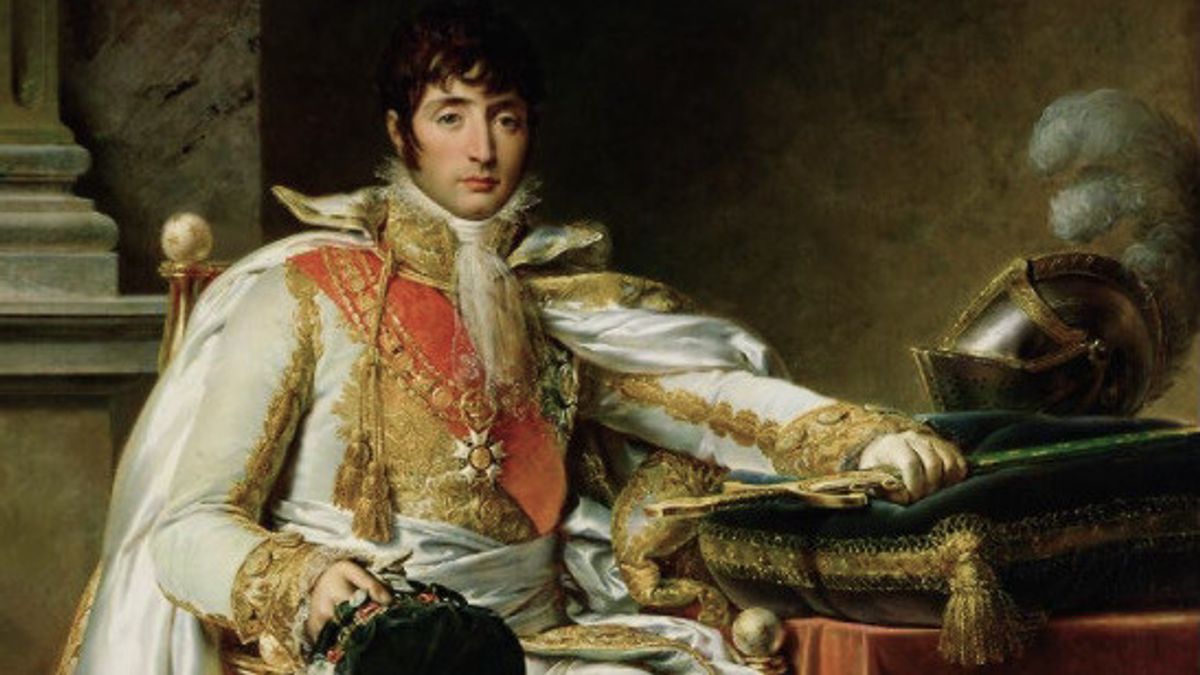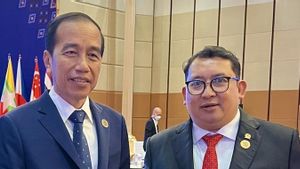JAKARTA – Today's history, 116 years ago, on February 9, 1807, the King of the Netherlands, Louis Napoleon (Lodewijk Napoleon) instructed Marshal Herman Willem Daendels to clean up the bureaucracy in the Dutch East Indies (now: Indonesia). The younger brother of Napoleon Bonaparte wanted the corrupt officials left by the Dutch trading company, the VOC, to disappear from the Nusantara.
Previously, VOC officials were fond of corruption. From high officials to the class of soldiers. The corruption agenda lasted for a long time. The disaster then came. The spell of corruption made the VOC bankrupt and disbanded.
The lifestyle of the Company's officials was extravagant. Every day they feasted, kept many slaves, and squandered money on luxuries. This existence continues to be highlighted along with the growth and development of the VOC.
Problems arise. The luxurious lifestyle of Company officials was not only supported by salary alone. This is because the salary of a VOC official was just average - if not to say small. That wealth only boils down to one thing: corruption.
The fraudulent practices of Company officials were perpetuated in a big way. From high officials and spread to lowly employees. There are also various forms of corruption that have been carried out. They are capable of manipulating the scales, buying and selling positions, and trading monopoly.

VOC officials also benefited a lot. While the VOC itself had to languish to cover the large costs of the spice trade that it carried out. Nothing can change it. Because, the guts of corrupt officials only think about money. This practice then made the Dutch swallow a bitter pill: go bankrupt and disband.
“The VOC, like all political/economic organizations of that era, only gave a nominal salary, merely a bond money. A governor of the North Coast of Java, for example, was only paid 80 guilders a month – and asked that this salary be given to his family in Holland (Netherlands). Because of this the VOC officials, who were supposed to trade for the benefit of their masters, instead tried for their own benefit.”
"In terms of VOC, officials can indeed try themselves - after trading for the VOC - and it is called marshandel (trading leftovers). However, the VOC ships departing from Java loaded so many trading goods that remained privately owned by VOC officials, and only a few official goods," said the historian Ong Hok Ham in the book Wahyu yang Hilang, Negeri yang Guncang (2018).
The company that went bankrupt made the Netherlands in a worse condition. This condition was exacerbated by the French success in conquering the Netherlands. French power over the Netherlands made Napoleon Bonaparte appoint his younger brother, Louis Napoleon as the new ruler of the Land of Windmills.
This power made France play an important role in developing the colony. Louis did not want his colonies to remain like the VOC era with corrupt officials. He immediately instructed Daendels to become the new leader (Governor General of the Dutch East Indies).

Louis Napoleon also wrote important instructions to Deandels on February 9, 1807. He wanted Daendels -on arrival in the archipelago- to immediately change the bureaucracy in the Dutch East Indies. All kinds of corrupt practices were instructed to be cut down and Daendels carried them out well from the beginning of government in early 1808.
“Daendels carried out the task given by King Louis of Hollandia (r. 1806-1810) with great powers to reform the corrupt government inherited from the VOC (9 February 1807). He was also given the highest military rank as Maarschalk van Holland (Marshal of Holland) to defend Java from British attacks."
“During his 41-month tenure as co-king of the colonizers, Daendels left an immortal name. He had no intention of carrying out trivial reforms of some ancient customs, or simply tweaking the minutiae to bring the Dutch East Indies Trade Union (VOC) into the modern era. He made changes from the roots of the trunk. His rule changed the political and social world in Java," said historians Peter Carey and Farish A. Noor in the book Ras, Kuasa, dan Kekerasan Kolonial di Hindia Belanda 1808-1830 (2022).
The English, Chinese, Japanese, Arabic, and French versions are automatically generated by the AI. So there may still be inaccuracies in translating, please always see Indonesian as our main language. (system supported by DigitalSiber.id)










